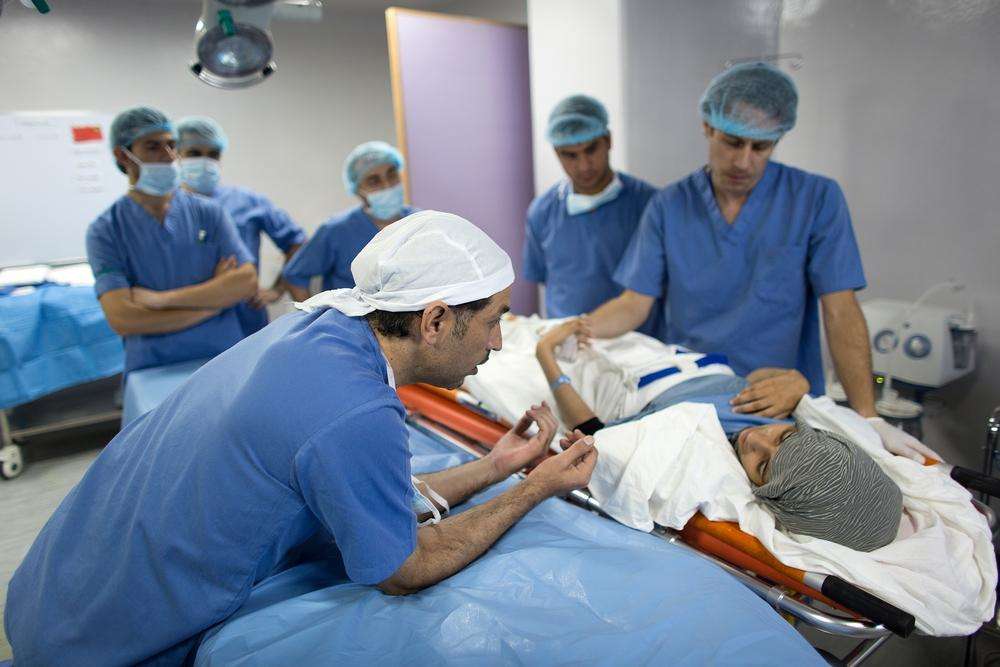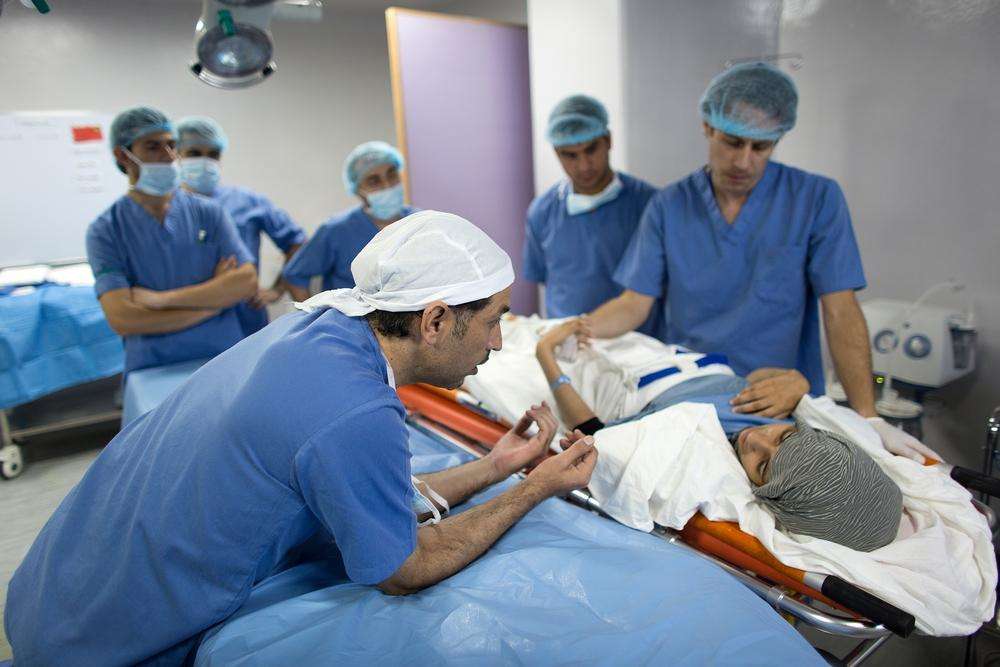Amman, Jordan/New York, September 29, 2016—At least 59 war-wounded Syrians, including 11 children between the ages of three and 14-years-old, have been denied medical evacuation to Jordan in the past three months, said the international medical humanitarian organization Doctors Without Borders/Médecins Sans Frontières (MSF) Thursday.
Six of the Syrians denied access to Jordan subsequently died, said MSF, which compiled this information with the help of its partners inside Syria. All of those denied entry into Jordan required urgent medical evacuation from Dara’a governorate in southern Syria, to MSF’s emergency surgical project in Ramtha hospital, Jordan, which is located just three miles from the border.
A deadly car bomb attack at the Jordanian-Syrian border on June 21, 2016 prompted Jordan to completely close its borders with Syria. The closure of the border has exacerbated an already dire humanitarian situation for Syians. As intense fighting continues, the actual number of people in need of immediate medical evacuation could be much higher, said MSF. At least four hospitals MSF supports in southern Syria have completely stopped referring patients to Jordan, as they know they will just be denied entry.
Thirty-year-old Mohammad Al Nuaimi, from Dara’a city, told MSF that his three children were seriously injured while playing with an unexploded ordnance. “I tried to pull them away, but the explosive went off and I was injured along with my children,” said Al Nuaimi. “We had to be moved from one hospital to another in search of specialized doctors and equipment, such as an X-ray machine, but doctors told me the severity of their injuries mean they need to be referred to Jordan, where they have the necessary medical treatment and equipment.”
Read: A Syrian Mother's Story of Her Daughter's Treatment in Ramtha, Jordan
The five-year conflict in Syria has decimated the country’s healthcare system, forcing many medical professionals to flee. The few hospitals in southern Syria that remain open have very limited capacity to respond to highly complex injuries, leaving the wounded with no option but to cross the border into Jordan to seek medical care—the closest safe destination.
“Despite my hopes, I have been informed by the medical evacuation team that the border is completely closed and that neither I nor my children are allowed to cross into Jordan, and that the decision is final,” said Al Nuaimi. “I feel frustrated and helpless, but I am forcing myself to remain strong and to find a solution to keep my children alive.”
Prior to the closure of the Jordanian-Syrian border on June 21, 2016, war-wounded Syrians were regularly evacuated to Ramtha hospital; MSF teams admitted approximately 50–80 war-wounded Syrians into the emergency room per month. Sixty percent of MSF’s patients in Ramtha hospital chose to return to Syria after being discharged.
“Whenever we heard the ambulance siren, we would run to the emergency room to see what new injury would be brought in and how we could help,” said Mohammad Momani, an MSF emergency room doctor in Ramtha. “Now we no longer hear the sirens, but we can still hear the bombings on the other side, and we know that there are still many injured in desperate need of reaching Ramtha hospital who cannot because the border is closed.”
MSF’s medical team in Ramtha continues to care for patients admitted before the borders were sealed. Working closely with the Jordanian Ministry of Health in Ramtha since September 2013, MSF has received 2,427 wounded in the emergency room and carried out more than 4,500 surgical interventions, including more than 800 major surgeries.
“Our teams have been providing lifesaving surgical care, as well as post-operative rehabilitative care, to war-wounded Syrians in a convenient and secure environment since September 2013,” said Merja Hietanen, MSF’s medical team leader in Ramtha. “They have helped Syrian patients recover physically and mentally, away from war and destruction. This is what makes access into Jordan, and into Ramtha hospital specifically, a necessity for the severely wounded.”
MSF reiterates its calls to the Government of Jordan to immediately resume medical evacuations for those in need—especially women, children and life-threatening cases—as they are entitled to receive medical treatment under international humanitarian law.
MSF has been working in Jordan since August 2006 when it set up a reconstructive surgery project in the capital, Amman. Since 2013, MSF has been running an emergency trauma surgical project in Ramtha hospital, as well as a mother and child hospital and two non-communicable disease projects in Irbid and Ramtha to support both Syrian refugees and vulnerable Jordanians.





